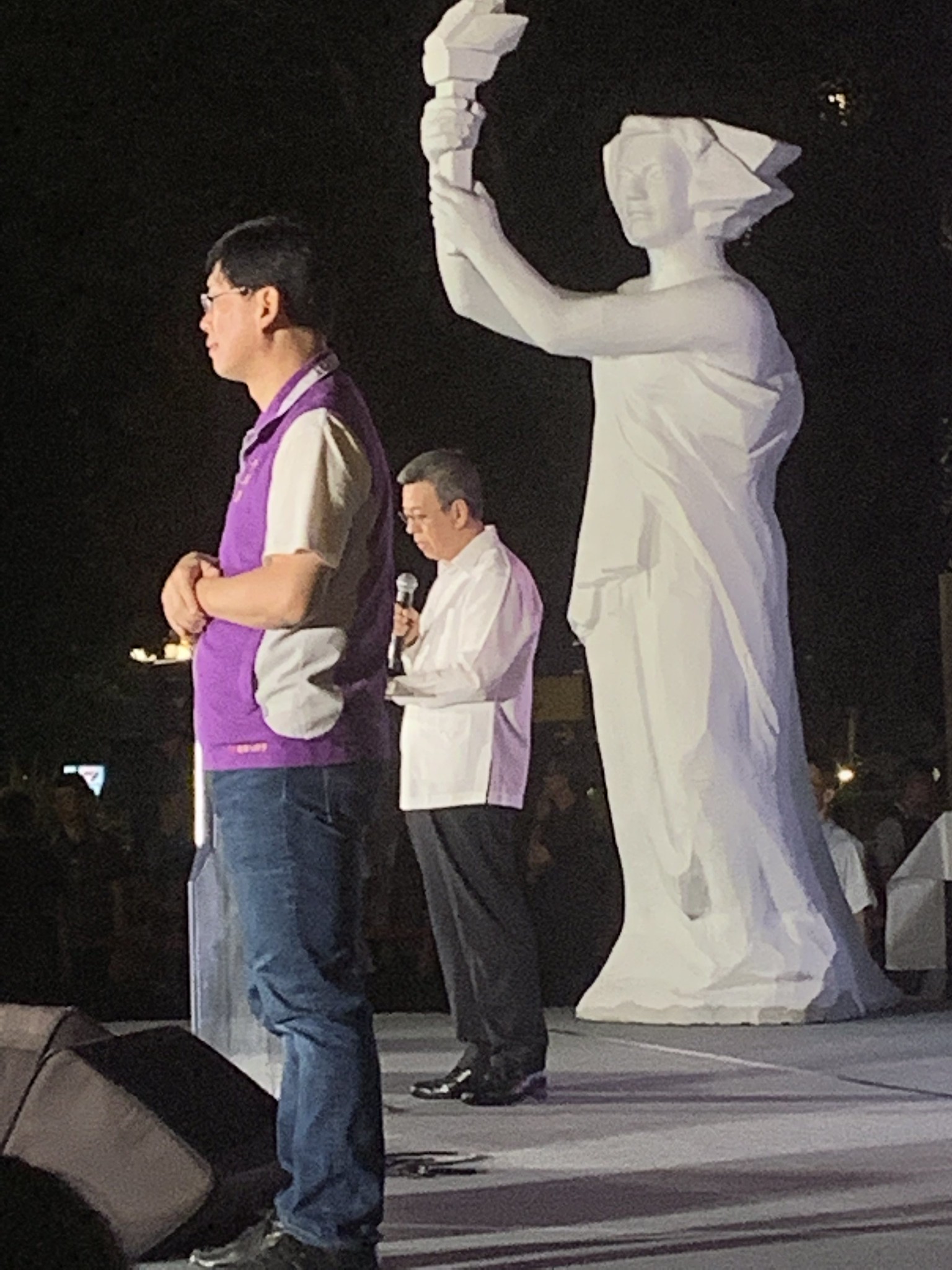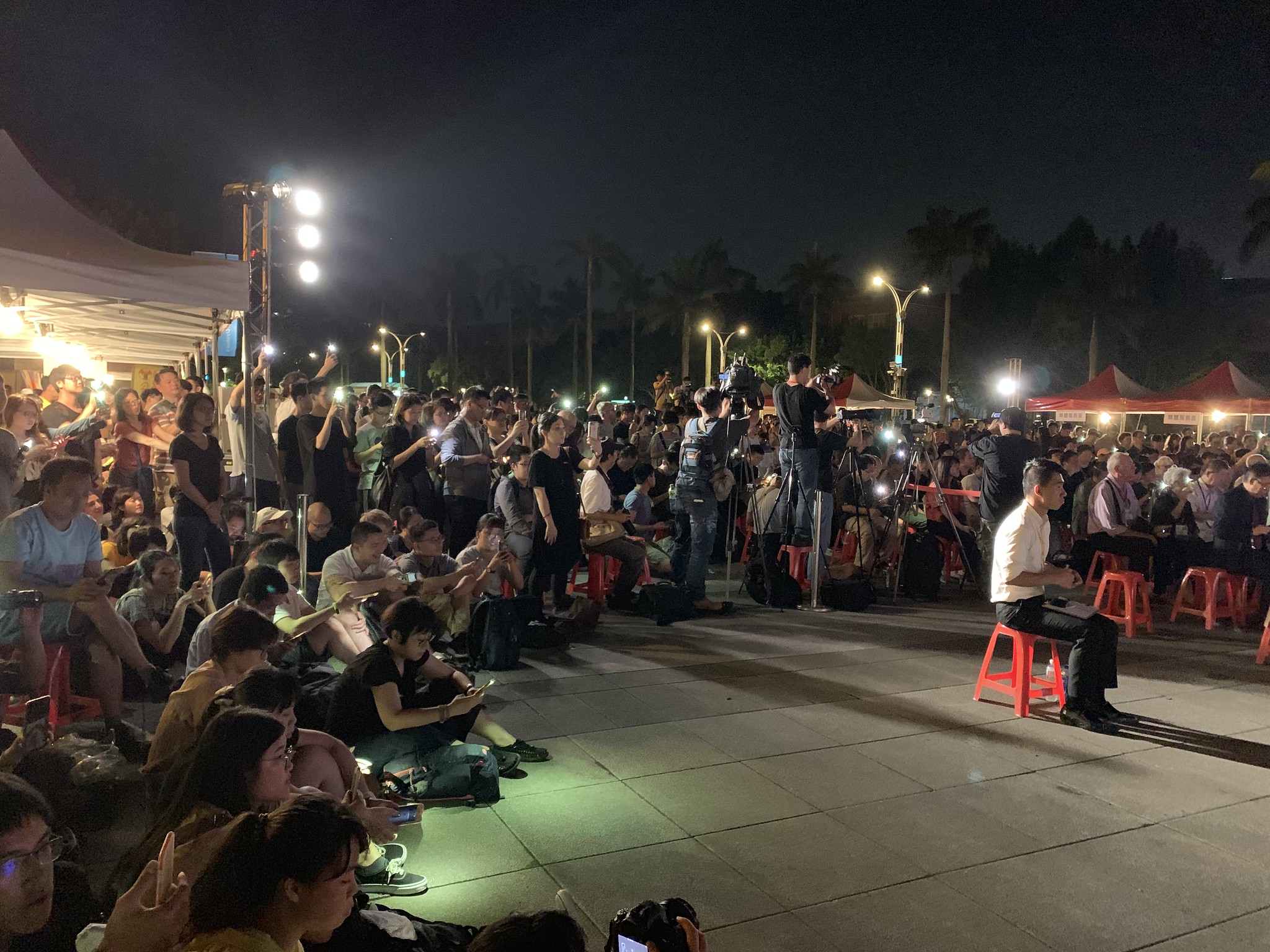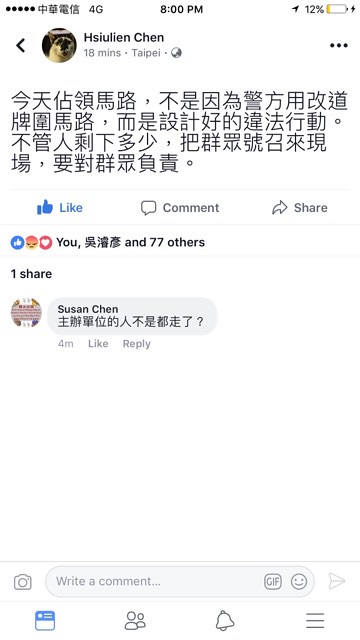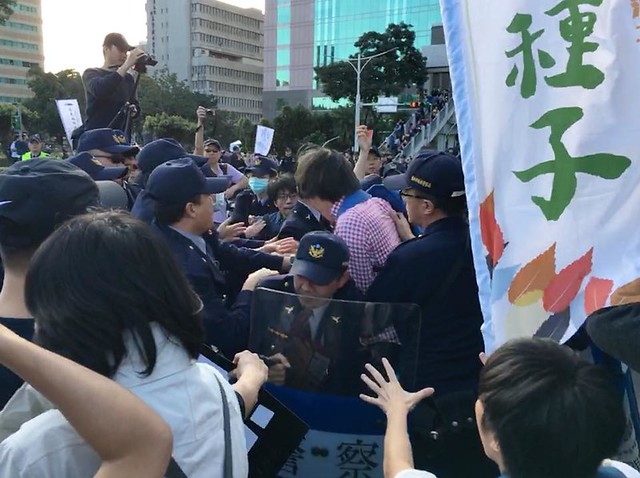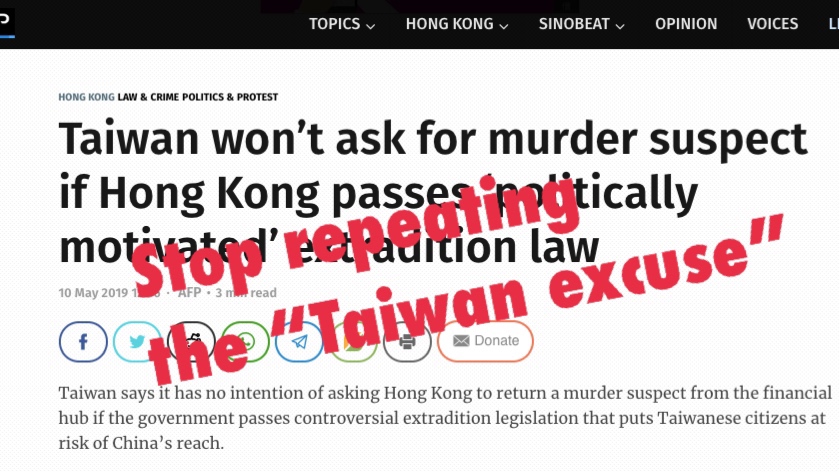 |
| It's not a beautiful cover image, but I don't know how to make it clearer, guys. Quit it already. |
You may have noticed in the vicious opposition to the (deeply terrifying) extradition law that Hong Kong looks set to pass by the end of June - yes, despite the massive protest - that one of the reasons the CCP-owned Hong Kong LegCo (the city's legislative body) gives for the urgency in passing this law is directly related to Taiwan.
Hong Kong resident Chan Tong-kai murdered his girlfriend in Taiwan in 2018 before flying back to Hong Kong, and is currently in custody on money laundering charges related to his dead girlfriend's assets there. However, as the murder took place in Taiwan, Hong Kong can't charge him for it. As there is no formal extradition treaty between Taiwan and Hong Kong, he can't be sent back to Taiwan to stand trial, either. Because he's not in jail for murder, he could be free by October. So now,
Here's what's interesting to me - I kept seeing this repeated in the media. It appears in almost every
Here's the thing, though. Taiwan has already said it will not ask for Chan's extradition - which negates the 'we need this bill for Taiwan' argument altogether:
“Without the removal of threats to the personal safety of [Taiwan] nationals going to or living in Hong Kong caused by being extradited to mainland China, we will not agree to the case-by-case transfer proposed by the Hong Kong authorities,” Chiu Chui-cheng, deputy minister of Taiwan’s Mainland Affairs Council, told reporters on Thursday" [last month - this piece is from May].
And yet most media are still pretending that
It's a wonderful smackdown from Taiwan, making it quite clear that their solidarity with the real will of Hong Kong residents will not be compromised.
The impact of this extradition bill will be huge to HK. Its position of being the Asian financial will be undermined. Read more here: https://t.co/iUhXKjuzr6 https://t.co/gQ6kqX7gut— Yu Wan-Ju (Karen) (@karenyu) June 10, 2019
Taiwan does not want this bill to be passed despite
Protests and demonstrations in Taiwan frequently enjoy solidarity from Hong Kong, and Hong Kong democracy and sovereignty movements are strongly supported among social movement activists in Taiwan (and have some level of popularity among everyday people here, too). There's a huge amount of cross-pollination and quite a few friendships that bridge the two groups of activists - a state of affairs which China is unhappy about, but can't really do much to stop (beyond banning Taiwanese activists and certain political figures from visiting Hong Kong). Even outside of social activist circles, Hong Kongers and Taiwanese share a bond stemming from their common threat and common desire to either obtain or uphold democratic norms. The two movements - formal independence for Taiwan and sovereignty for Hong Kong - are quite intertwined.
So, I happen to think this goes beyond trying to convince Hong Kongers of the need for expediency in passing the law. To sow discord between Taiwan and Hong Kong by drawing attention to a murder case in Taiwan that can only be solved by this Trojan Horse extradition law would be a major victory for China - I have to believe this "Taiwan excuse" is a push in that direction.
More people should be appreciating that Taiwan shut it right down over a month ago. At the very least, the media should be including a short acknowledgement of it every time they includeChina's Hong Kong's "Taiwan excuse", or stop including it altogether.
So, I happen to think this goes beyond trying to convince Hong Kongers of the need for expediency in passing the law. To sow discord between Taiwan and Hong Kong by drawing attention to a murder case in Taiwan that can only be solved by this Trojan Horse extradition law would be a major victory for China - I have to believe this "Taiwan excuse" is a push in that direction.
More people should be appreciating that Taiwan shut it right down over a month ago. At the very least, the media should be including a short acknowledgement of it every time they include
It makes sense that Taiwan wouldn't buy it (and you shouldn't either) - nobody who is sympathetic to the fight against encroaching Chinese expansionism, who thinks about the issue for more than a few seconds, would think that the extradition of one murder suspect to Taiwan would be enough to merit the passage of a broadly damaging law in Hong Kong. The price is simply too high.
So jeez, guys. Stop recycling stale old garbage. If it smells bad, dump it.
Of course this isn't the only media fail - in the Chinese-language Taiwanese media...well. They're either not covering the Hong Kong protests at all or put them way at the back:
As my husband pointed out when he fired up the United Daily News app out of curiosity: "UDN does cover it, but to get to a story about it you have to scroll through three pictures of Han Kuo-yu, a picture of Wang Jin-pyng and a picture of Terry Gou."
So while all my green and colorless friends know what's going on, once again all the blue-leaners in Taiwan won't realize the import of these protests and make up their minds accordingly. Thanks,Chinese Taiwanese media, for being so singularly awful!
So jeez, guys. Stop recycling stale old garbage. If it smells bad, dump it.
Of course this isn't the only media fail - in the Chinese-language Taiwanese media...well. They're either not covering the Hong Kong protests at all or put them way at the back:
“How to burry a news” by China Times. pic.twitter.com/ComUEFDM0w— Pierre-Yves Baubry (@pybaubry) June 10, 2019
I told my family members who rely on "the old three 老三台" for news, none of them are aware of HK Protest. At least not in the prime time https://t.co/OI4wGbGFiO— Chen-Yi Tu (Crystal) (@crystaltu_) June 10, 2019
As my husband pointed out when he fired up the United Daily News app out of curiosity: "UDN does cover it, but to get to a story about it you have to scroll through three pictures of Han Kuo-yu, a picture of Wang Jin-pyng and a picture of Terry Gou."
So while all my green and colorless friends know what's going on, once again all the blue-leaners in Taiwan won't realize the import of these protests and make up their minds accordingly. Thanks,






